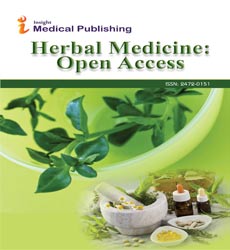Role of Ashwagandha Churna in the management of Central Serous Chorioretinopathy(CSCR): A Holistic Approach
KRISHNA BAHADUR PANDEY
Explore Healthcare Pvt. Ltd, Nepal
Received Date: 2022-03-10 | Accepted Date: 2022-03-17 | Published Date: 2022-03-24KRISHNA BAHADUR PANDEY
Explore Healthcare Pvt. Ltd, Nepal
Received date: 2022-03-10 | Accepted date: 2022-03-17 | Published date: 2022-03-24
Abstract
Central Serous Chorioretinopathy is an ocular disease that has been partly understood; both in its etiology and management. Till date, no medical treatment has proven effective for CSCR. However, acetazolamide has been suggested to lessen the amount of subretianl fluid. Corticosteroids, focal laser photocodynamic therapy are considered to be of good prognosis but bears tangible risks, and thus are seldom indicated as because the optimal timing of interventions remains unclear.Various studies suggests that CSCR has been associated with type A personality, or those who are experiencing psychological stress. There is no any past studies on treating CSCR with Ashwagandha (Indian ginseng or winter cherry) , Withania somnifera. There are reports of Ashwagandha’s active role in reducing stress and anxiety, improviing concentration, fatigue and sleep, and protecting against oxidative stress.A prospective study on acute CSCR on 25 eyes diagnosed by optometrist on conducted including three bilateral CSCR. Macular OCT revealed the amount of Sub-Retinal Fluid (SRF) in each cases. All the subjects were prescribed with Ashwagandha Churna with dose as a tablespoon twice a day for two months. The macular OCT, Visual Acuity and Contrast Sensitivity were recorded in two follow-ups besides regualr ancilliary testing. The mean BCVA and contrast sensitivity improved in 11 eyes with no SRF at final follow up and was statistically correlated.

Open Access Journals
- Aquaculture & Veterinary Science
- Chemistry & Chemical Sciences
- Clinical Sciences
- Engineering
- General Science
- Genetics & Molecular Biology
- Health Care & Nursing
- Immunology & Microbiology
- Materials Science
- Mathematics & Physics
- Medical Sciences
- Neurology & Psychiatry
- Oncology & Cancer Science
- Pharmaceutical Sciences
